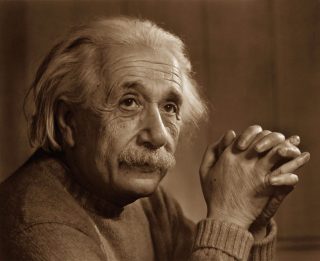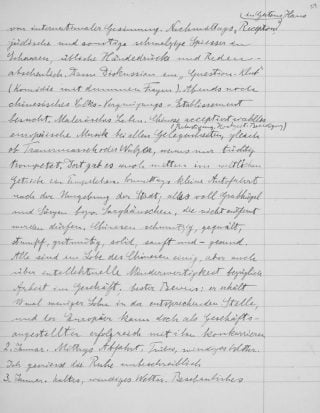Albert Einstein is a name that resonates virtues like intelligence, wit and compassion. However, one would never associate the name with racism. This is what has happened in the recent unfolding of events.

Einstein’s travel diaries of his visits to East Asia, Palestine and Spain from October 1922 to March 1923 have brought to light certain never before known, compelling observations. The diary entries assert the idea that Einstein was in simple terms, racist.

THE NOTION OF “BIOLOGICAL INFERIORITY”
Einstein perhaps believed that Indians were “biologically inferior.” He seemed to have believed this on grounds that the Indian climate wasn’t conducive to intellectual development and hence hampered such a growth in Indians.
He further believed that such a climate “prevented them from thinking backward or forward by more than a quarter of an hour.”
Ze’ev Rosenkranz, the editor of the book which contains Einstein’s travel diaries says that his remarks on the Indians, Chinese and Japanese people display a “clear hallmark of racism.” He observes that Einstein refers to them by saying that they have “primitive lives.” Einstein further asks “wouldn’t we too, in this climate, become like the Indians?”

Also Read: Why Was Everyone In Awe Of Stephen Hawking And What Made Him Deserving Of It?
BUSTING THE MYTH OF BIOLOGY
These remarks are certainly derogatory and completely undermine the intellectual breakthroughs of the Indians. Furthermore, the notion of “biological inferiority” is highly problematic here. If at all, he considered Indians to be inferior, he should’ve talked about the inferiority stemming from socio-economic adversities which aren’t naturally instilled, instead of pinning the label of inferiority to biology.
The most vivid example of such adversities being inflicted upon the Indian subcontinent and other East Asian nations, was the era of colonial domination, which led to immense resource extraction and exploitation supplemented by the breakdown of already existing institutions of trade, industry, culture and intellect.
By calling Indians and other East Asian countries as “primitive” and “biologically inferior” he is automatically clubbing all of them under an undifferentiated tag of Orientalism. The term doesn’t recognise the diversity and individuality of the so called ‘Orientalist’ nations.
Another observation which has emerged is related to the notion of ‘perceived inferiority’. What marks the differences in what is superior and what is inferior, in terms of differentiating India from the West? The parameters of superiority and inferiority are ambiguous and if ascertained, are dominated by Western criteria with limited reach.
The notion of inferiority is also relative. The assumption that white privilege, Western achievements and ideas form the pinnacle of superiority, is bridled with Euro-centricism.
TESTAMENT TO INDIAN “INFERIORITY”
The Indian intellect cannot be looked down upon on the basis of these assumptions. There is a fair share of achievements among many that have dotted the Indian trajectory of successes.
These range from the ancient Indian developments in medicine, Yoga, surgery, astronomy, linguistics and of course mathematics and the invention of zero to more recent intellectual developments like Chandrayan-1 ‘s discovery of water on the moon to ISRO’s many achievements in 2017 which have contributed greatly to Space research.
India has produced stalwarts in all walks of life, from those in the various branches of science, arts, philosophy, literature, industry, entertainment etc. Names like M.F Hussain, Homi J. Bhabha, Ratan Tata, Rabindranath Tagore, Satyajit Ray, Raj Kapoor, Deepak Chopra are just a few of the many who are evidence to this.
Additionally, it is also ironic that Einstein engaged in racism, when he himself faced racism by the Nazis by virtue of being a Jew.
The notions of superiority and inferiority are ambiguous, relative and have multiple definitions. Attributing a biological status to social developments and phenomena is highly problematic when it comes to perceiving these ideas.
Sources: India Today, India Times, India Times
Image Source: Google Images
Other Recommendations For You:
http://edtimes.in/2018/06/whats-it-like-to-be-a-journalist-in-india/




























